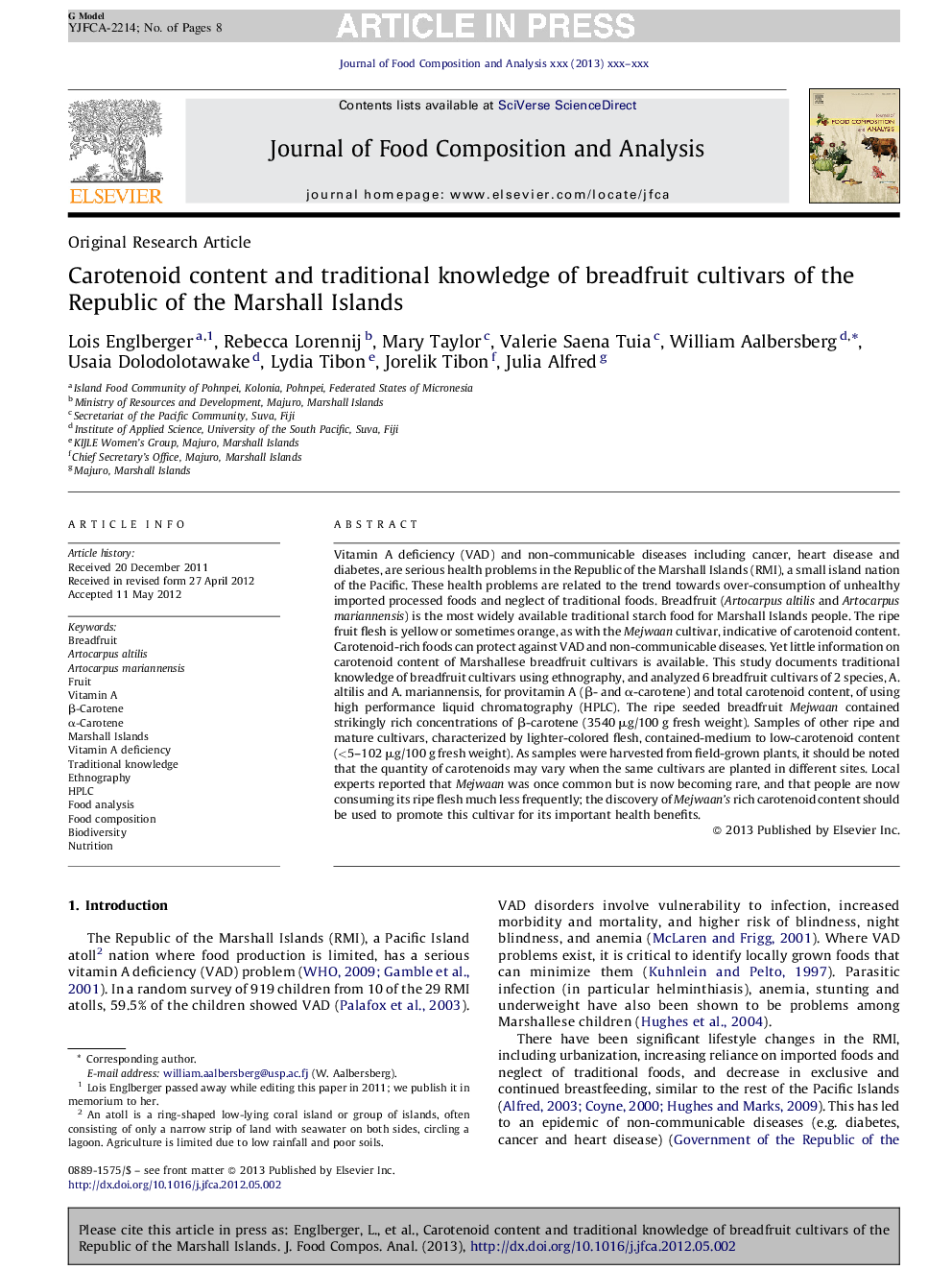| Article ID | Journal | Published Year | Pages | File Type |
|---|---|---|---|---|
| 10552732 | Journal of Food Composition and Analysis | 2014 | 8 Pages |
Abstract
Vitamin A deficiency (VAD) and non-communicable diseases including cancer, heart disease and diabetes are serious health problems in the Republic of the Marshall Islands (RMI), a small island nation of the Pacific. These health problems are related to the trend towards over-consumption of unhealthy imported processed foods and neglect of traditional foods. Breadfruit (Artocarpus altilis and Artocarpus mariannensis) is the most widely available traditional starch food for RMI people. The ripe fruit flesh is yellow or sometimes orange, as with the Mejwaan cultivar, indicative of carotenoid content. Carotenoid-rich foods can protect against VAD and non-communicable diseases. Yet little information on carotenoid content of Marshallese breadfruit cultivars is available. This study documents traditional knowledge of breadfruit cultivars using ethnography, and analyzed 6 breadfruit cultivars of 2 species, A. altilis and A. mariannensis, for provitamin A (β- and α-carotene) and total carotenoid content, using high performance liquid chromatography (HPLC). The ripe seeded breadfruit Mejwaan contained strikingly rich concentrations of β-carotene (3540 μg/100 g fresh weight). Samples of other ripe and mature cultivars, characterized by lighter-colored flesh, contained medium- to low-carotenoid content (<5-102 μg/100 g fresh weight). As samples were harvested from field-grown plants, it should be noted that the quantity of carotenoids may vary when the same cultivars are planted in different sites. Local experts reported that Mejwaan was once common but is now becoming rare, and that people are now consuming its ripe flesh much less frequently; the discovery of Mejwaan's rich carotenoid content should be used to promote this cultivar for its important health benefits.
Keywords
Related Topics
Physical Sciences and Engineering
Chemistry
Analytical Chemistry
Authors
Lois Englberger, Rebecca Lorennij, Mary Taylor, Valerie Saena Tuia, William Aalbersberg, Usaia Dolodolotawake, Lydia Tibon, Jorelik Tibon, Julia Alfred,
